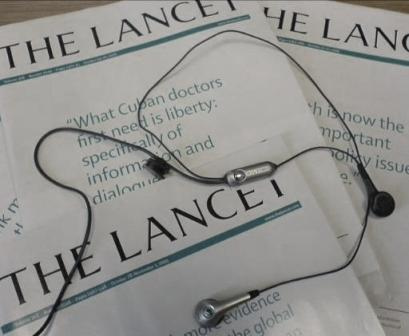The global outpouring of support for people affected by the South Asia earthquake and tsunamis of 2004 added up to more than $14 billion.
One notable fact about this $14 billion is that it represents the most generous international response to a natural disaster on record. Another is that it exceeded the total estimated cost of damages from the storm by some $4 billion, or about 30 percent.
What drove these record-breaking sums in the aftermath of the tsunami was not aid from governments, although that too was large. It was private individuals and companies who reached into their pockets and gave generously, to the Red Cross, to UNICEF and other UN agencies, and above all to what is estimated to be the largest proliferation of NGOs that had ever implemented relief efforts in a single disaster.
We don’t yet know how the Haiti response will compare. We do know that donor pledges to help those affected by last Tuesday’s earthquake in Port-au-Prince, pushed along by texting and twitter campaigns, have also been fast and plentiful (while no list seems totally comprehensive, there are tallies of pledges here , here and here).
And we know that some of the same conditions that made the response to the tsunami so generous are at play in Haiti as well. For one, the proximity to the Christmas season, when many Western donors are predisposed to be thinking about giving, and have holiday charity solicitations fresh in their minds. For another, the barrage of media coverage, especially (from Haiti) television stories featuring dramatic rescues that underscore the heroism of American-funded rescue teams.
Relief agencies having a lot of money to draw upon had many real, positive consequences for the survivors of the tsunami in South Asia. Quick-response relief efforts received praise from evaluators and local populations. But the unprecedented pledges in answer to post-tsunami fundraising appeals didn’t solve all problems, and in fact amplified some existing ones—like competition among NGOs, funding decisions based on media and political pressure rather than actual needs or capacities of affected countries, and weakening humanitarian impartiality.
The authors of one report by the Tsunami Evaluation Coalition* found that generous funding “exceeded the absorption capacity of an overstretched humanitarian industry” and actually served as a disincentive for NGOs to work together and pool resources and information. It also caused inexperienced NGOs to proliferate, and encouraged even experienced actors to work outside their realm of expertise.
Some NGOs that found themselves with unexpected amounts of money to spend responded by extending the time horizons or scope of their programs. Only Médecins sans Frontières was quick to admit that they had enough donations for the tsunami and request that additional funds help people elsewhere, a move which initially drew criticism from other NGOs. (MSF posted a similar statement for Haiti last week).
Humanitarian aid is supposed to be allocated according to the principle of impartiality -- the idea that assistance should be offered according to need, not nationality, or political belief, or even how compelling a particular disaster may be to donors. This may be an impossible ideal, but consider that the $14 billion for survivors of the tsunami works out to about $7,000 per person, and compare that to the roughly $150 per person for Somalis affected by civil strife in 2005, or $3 per person for the 2004 floods in Bangladesh.
It may seem callous to suggest even by analogy that the flow of funds going immediately to Haiti be in any way stemmed or diverted. But the effects of big fundraising appeals are complex, and not as temporary we might assume: “The scale of the resources to be spent will distort agency programmes in favour of tsunami-affected areas for years to come,” found another report.
The solution is not to stop donations to organizations doing good work in Haiti. Haitians need international help to rebuild now. The point is rather to give money in such a way that mitigates the negative effects of this compassionate onslaught of giving, and encourages the international system to allocate funds effectively and fairly. Other, good blogs have already discussed some strategies; I give you three of them:
- Don’t restrict (or earmark) your donations to be used only in Haiti, but rather allow your chosen NGO to spend the money you donate as they see fit. If you don’t trust them to allocate your funds effectively to where they are most needed, then why are you giving them money in the first place?
- Take up the Philanthrocapitalism blog's advice to give an equal amount to "someone suffering just as much, but less dramatically, elsewhere in the world."
- Space out your giving. Organizations with a history of working closely with Haitian communities will still be there in six months. They will probably be there in a year, and probably in five years too. They will need your money then as well, when the spotlight has shifted to the next disaster.
--
*ALNAP (Active Learning Network for Accountability and Performance), is the repository of many useful documents from the Tsunami Evaluation Coalition. ALNAP has also produced lessons learned reports on Responding to Urban Disasters and Responding to Earthquakes 2008, among others.
 From Aid to Equality
From Aid to Equality

